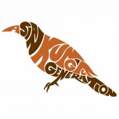wie ist die Regel für "ea"?
Im englischen wird "ea" in read wie "ried" ausgesprochen.
Aber in "bread" wird es wie "Brett", also ein kurze "ä" ausgesprochen.
wie ist denn da die Regel?
7 Antworten

In read sind so gar beide Aussprachen möglich: "rihd" als Präsens, "red" als Partizip Perfekt. Bei lead ist es auch so: in der Bedeutung führen als "lihd" und für Blei spricht es sich "led" aus. Es kann also gar keine Regel geben.

Der Digraph ae steht in der englischen Orthographie gewöhnlich für langes İ [iː] (reveal, dream), oft auch für kurzes offenes E [ɛ] (dreamt, cleanse), aber es kommen auch Diphthonge wie [eɪ] (great) oder [ɪə] (real) vor, und in unbetonten Silben wird sowieso immer abgeschwächt (ocean). Wenn ein r folgt, gelten typischerweise ganz andere Regeln (hearth, dear).
Das liegt daran, daß das Englische vor nicht allzulanger Zeit (≈1800) seine Aussprache besonders bei den Vokalen stark verändert hat, aber die alte Orthographie beibehalten hat, so daß Schreibung und Lautung heute sehr weit auseinanderklaffen. Das ist auch der Grund, warum viele Gedichte von Shakespeare (≈1600) sich heute nicht mehr reimen, z.B. proved/loved. Leute mit mehr Ahnung als ich werden vielleicht sogar Beispiele mit ea finden (in der Art von great/feat), aber dazu habe ich ihn nicht aufmerksam genug gelesen.

Das "ea" wird auch in "read" wie "kurzes ä" ausgesprochen, wenn es in der Vergangenheitsform steht. Es gibt also keine Regel.
Einfach auswendig lernen.

Da gibt's keine feste Regel.
Muss man einfach auswendig lernen.
Genau wie in der deutschen Sprache das V mal wie F und mal wie W ausgesprochen wird, vergleiche: VATER und VASE.

Bei V - F versus W gibt es sehr wohl eine Regel: Ursprünglich germanische Wörter F, ursprünglich lateinische W!